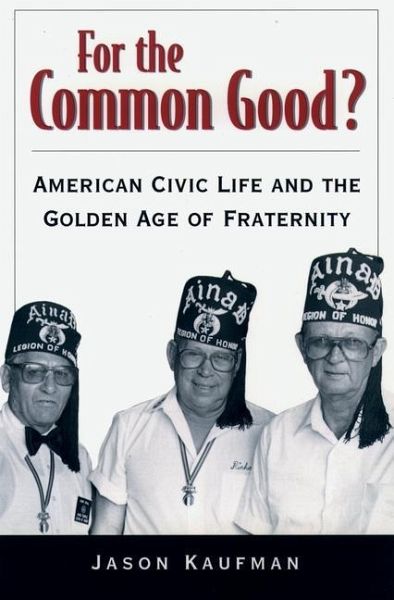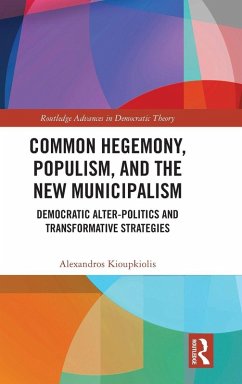
For the Common Good?
American Civic Life and the Golden Age of Fraternity
Versandkostenfrei!
Versandfertig in 1-2 Wochen
43,99 €
inkl. MwSt.

PAYBACK Punkte
22 °P sammeln!
The Golden Age of Fraternity was a unique time in American history. Joining clubs, fraternities, militias, and mutual benefit societies between the Civil and First World Wars was so prevalent that many contemporaries see it as a model for a revitalization of American civil society today. Relying on extensive analysis of city directories, club histories, and membership lists, For the Common Good? aims to dispel many of the myths about the curative powers of clubbing while bringing to light the hidden lessons therein.












